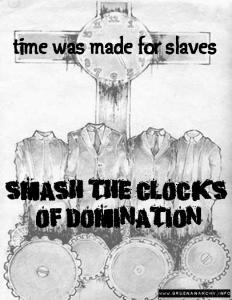Alright, folks. It would seem DP has finally jumped the shark—or at the very least, hit peak media oversaturation, and exhausted its fifteen minutes as a rating$ juggernaut—and stopped producing new episodes, which mean there are only two I have left to cover this season…and I really couldn’t be happier. It’ll be a big weight lifted off my shoulders when I won’t have to subject myself to watching this program (one which, in the big picture, turned out to be pretty sensationalist, exploitative, and generally detestable) for the bigger purpose of uncooling its message.
It’s not 2012 anymore, and I think folks are kinda sick of ‘reality’ shows about midlife-crisis, middle-class white guys with more money than sense, delusions of grandeur, and hard-ons for ‘tactical’ weaponry and foodbuckets. Don’t worry, they’re still out there; but the media landscape has (unsurprisingly) shifted over the past two years to the point where Prepperdom isn’t such a hot commodity anymore. Which is fine by me, because while it means a little less blog traffic for this page, it also means less toxic, deluded, status quo-y notions being broadcast into the public mindspace.
Anyway, episode ‘Nobody Will Be Ready’ cuts between the two Davids from Tennesseee; both guys are supposedly (but not unreasonably) preparing for a quake along the New Madrid fault line.
First up is David Mays:

Transparency clause: David and his wife Holly run an essential oils business (remember, this show has almost always been about ‘preppers’ using their appearance as publicity for their own enterprises).
Even though they live in a tract of burbland, their family seems to be taking some good first steps to increase their self-reliance by raising silkie chickens in the backyard, and growing aeroponic vegetables in a vertical garden tower.
But David’s main hobby, it seems, is flying drones!
Huh.
While the military-capitalist-corporate-industrial hegemons rain down remote-piloted death and destruction on foreign civilians of colour, here at home the basic technology has trickled down to the prosumer level, allowing armchair hobbyists to tinker about and remote-pilot their own camera-equipped drones around their pre-apocalyptic suburban wastelands! Isn’t our modern age great?
David’s plan post-quake is apparently to use his ‘drone army’ to ‘patrol’ his neighborhood, and equip them with various payloads—like one of those GoPro cameras that are all the rage right now, or a disposable camera-turned-improvised taser, or an ultralight silver parachute of medical supplies.
I dunno, I feel like it might just be easier and more productive/rewarding for David and/or the family to get out in the neighborhood on foot, meet their neighbors face-to-face, and start turning their subdivision into an actual community. Get a couple more families in the cul-de-sac on the chickens-and-gardening bandwagon and they could have the seeds of a nice little self-reliant network. Just a suggestion.

 He’s worried about “a major earthquake in the Alaska area”, which would likely result in a large tsunami. This is not entirely irrational, seeing how he’s right on the Pacific Ring of Fire.
He’s worried about “a major earthquake in the Alaska area”, which would likely result in a large tsunami. This is not entirely irrational, seeing how he’s right on the Pacific Ring of Fire.



